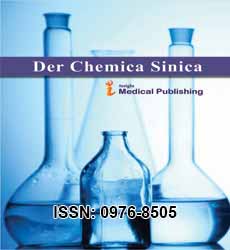ISSN : 0976-8505
Der Chemica Sinica
Editorial Note on Chitin to Lactic Acid conversion catalyzed by Magnesium Oxide
MNR Degree and PG College, Hyderabad, Telangana, India
- *Corresponding Author:
- Sirisha Ineni
MNR Degree and PG College
Hyderabad, Telangana, India
E-mail: inenisirisha28@gmail.com
Received Date: May 21, 2021; Accepted Date: May 26, 2021; Published Date: May 31, 2021
Citation: Sirisha I (2021) Editorial Note on Chitin to Lactic Acid Conversion Catalyzed by Magnesium Oxide. Der Chem Sin Vol. 12, No.5:22.
Editorial Note
Although homogeneous catalysis can convert chitin, an N-acetyl- D-glucosamine polymer, to useful chemicals, the majority of chitin generated by food processing is handled as industrial waste. As a result, a mechanism for turning this plentiful source of biomass into valuable compounds like lactic acid would be advantageous.
The catalytic activities of several metal oxides for chitin conversion at 533 K were investigated in this work, and we discovered that MgO had the maximum activity for lactic acid generation. MgO was changed to Mg(OH)2 during chitin conversion, according to X-ray diffraction and thermogravimetry-differential thermal analysis.
When the reaction was carried out for 6 hours with 0.5 g of MgO catalyst, the maximum yield of lactic acid (10.8 percent) was produced. After the reaction, the catalyst could be recovered as a solid residue and reused twice without lowering the lactic acid production.
The major component of crustacean shells, such as crabs and shrimp, is chitin, which is the second most prevalent biopolymer after cellulose. The conversion of cellulose, a D-glucose polysaccharide, into useful compounds as fuels has been intensively researched. In contrast, there haven't been many examples of chitin, an N-acetyl-D-glucosamine polysaccharide, being converted into valuable compounds. In contrast to biorefinery, the notion of "shell biorefinery" has recently been presented.

Open Access Journals
- Aquaculture & Veterinary Science
- Chemistry & Chemical Sciences
- Clinical Sciences
- Engineering
- General Science
- Genetics & Molecular Biology
- Health Care & Nursing
- Immunology & Microbiology
- Materials Science
- Mathematics & Physics
- Medical Sciences
- Neurology & Psychiatry
- Oncology & Cancer Science
- Pharmaceutical Sciences
